
As Beijing Normal University embraced its fresh batch of students for the fall semester, we gathered here once again. On the evening of September 5th, the Law School had the pleasure of welcoming back Professor Michael Faure, a distinguished authority in international environmental law from Maastricht University and Erasmus University Rotterdam in the Netherlands. He was invited to deliver the inaugural lecture of the semester to our students.
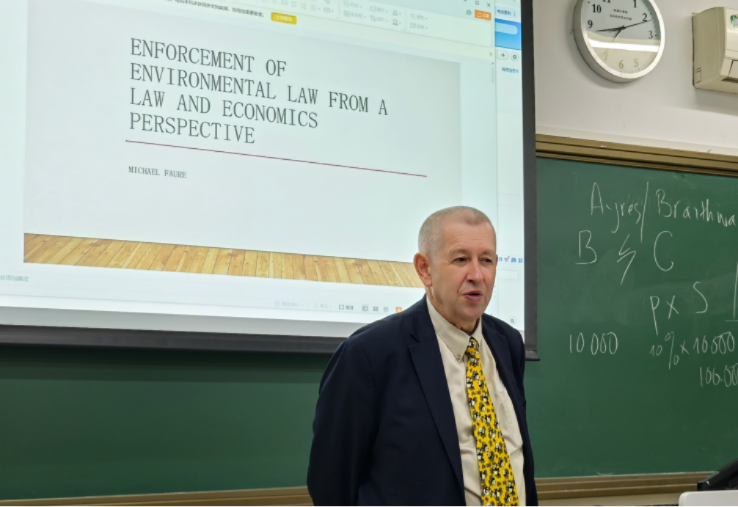
The subject of Professor Faure's lecture was “Enforcement of Environmental Law from a Law and Economics Perspective.” The event was gracefully moderated by Associate Professor Yan Houfu of the Law School of Beijing Normal University. Joining as esteemed panelists were Associate Professor Zhao Chenguang and Associate Professor Yang Chao, also from the Law School of Beijing Normal University. The lecture drew an engaged audience, with over 30 law students in attendance.
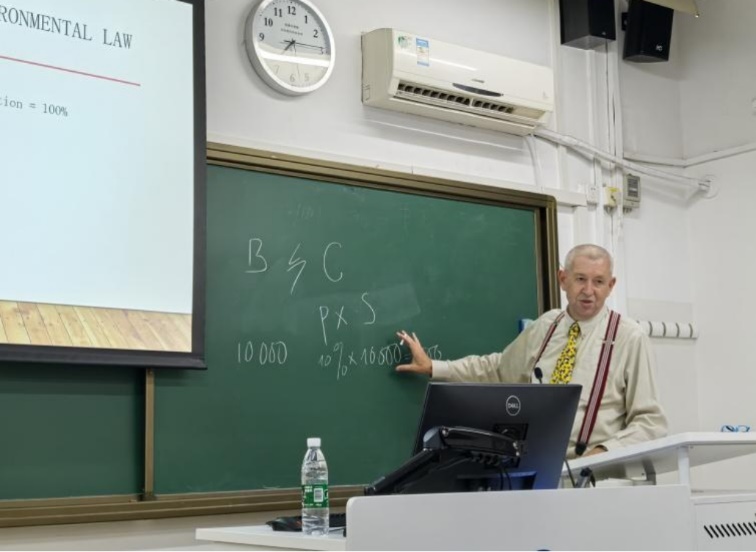
This lecture focused on the enforcement of environmental laws, that is, what kind of regulatory approach should be used to implement environmental laws. Professor Faure initiated the discussion by examining the strengths and weaknesses of three distinct law enforcement mechanisms: private, administrative, and criminal enforcement. To facilitate a coherent comparison, he introduced an innovative approach by applying the lens of law and economics. Grounding his analysis in the rational person assumption, he presented a formula that encapsulates the following criteria for evaluation:
![]()
In this formula, B represents the benefit of violation, p the probability of detection, and S the amount of punishment. Only when the product of p and S is greater than or equal to B will rational parties act in accordance with the law. Professor Faure discussed in detail what enforcement measures should be applied under different levels and degrees of illegal profits, the probability of detection of illegal acts and the amount of punishment. After a thorough examination of diverse scenarios, Professor Faure’s synthesis led him to the conclusion that, ideally, private law enforcement should be the preferred method. He argued that robust private law enforcement mechanisms could significantly reduce the reliance on public law enforcement resources. Additionally, he contended that while criminal law enforcement should remain the ultimate measure, reserved for the most severe violations, it should be complemented by administrative law enforcement to create a comprehensive and effective regulatory framework.
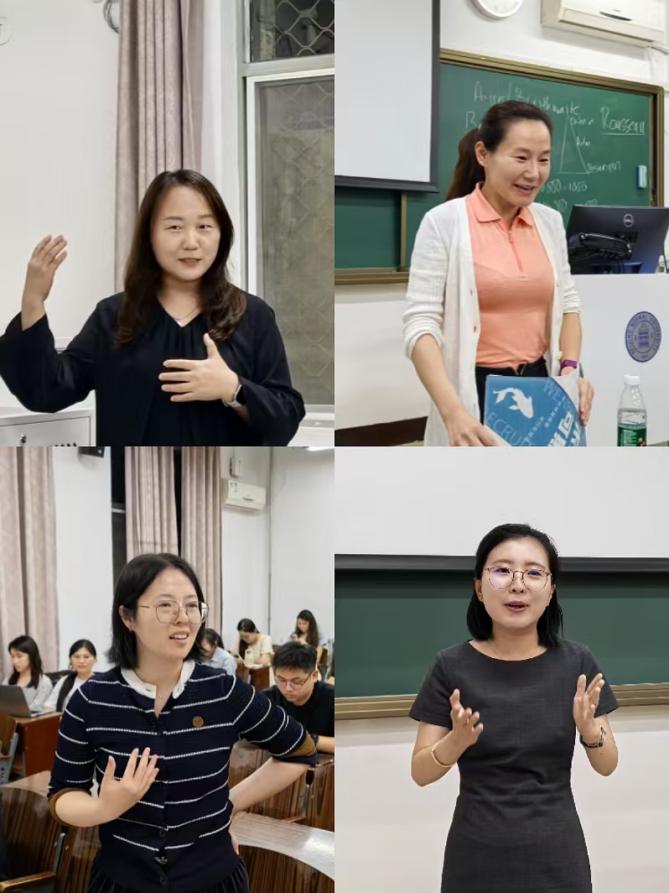
The panelists, Associate Professors Zhao Chenguang and Yang Chao of the Law School of Beijing Normal University, concurred with and expressed their appreciation for the insights provided by Professor Faure. They acknowledged that his lecture illuminated the fundamental principles of legal regulation and offered an innovative comparative analysis of the strengths and weaknesses of various regulatory approaches through an economic lens. The lecture's multifaceted perspective not only served as an inspiration for environmental law students but also held value for those studying in other disciplines. Faculty members, including Teacher Ai Huizi from the Law School of Beijing Normal University and Associate Professor Lv Mengxing from the School of Civil and Commercial Law at China University of Political Science and Law, who were present at the lecture, also contributed their thoughts and posed questions. Professor Faure responded to these with enthusiasm and engagement.
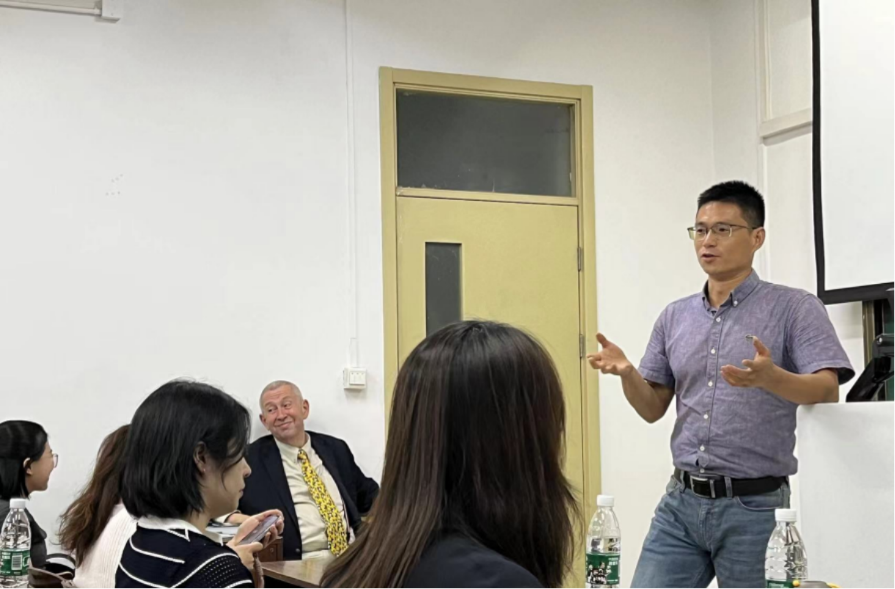
Associate Professor Yan Houfu concluded the lecture with a comprehensive summary. He began by extending his heartfelt thanks to Professor Faure for his enlightening presentation. Utilizing the case of water pollution involving Nanjing Sembcorp Water Co., Ltd., Associate Professor Yan Houfu dissected the "hybrid" enforcement strategies employed by Chinese legal and judicial authorities. This included an examination of ecological environmental damage compensation, administrative penalties, and criminal liability, as well as an exploration of the efficacy of alternative restoration measures. By doing so, he enriched the comprehension of the lecture's content for both faculty and students.
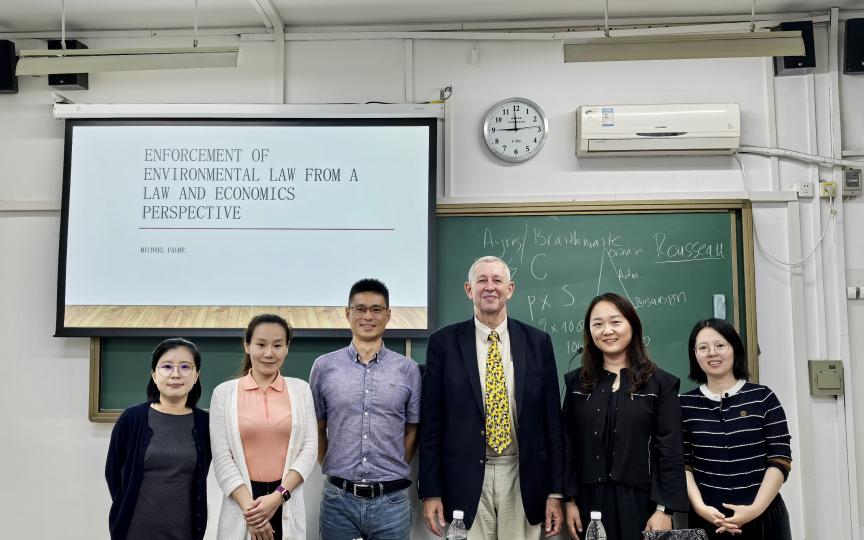
The lecture provided students with not only profound reflection on the choice of regulatory tools in environmental law but also enhanced their grasp of applying economic principles within legal scholarship. This event showcased the distinctive allure of the Law School of Beijing Normal University as a beacon of international legal education. It stands not merely as an institution for the dissemination of knowledge but also as a vital hub for converging global insights, fostering academic dialogue, and advancing collaborative endeavors.
